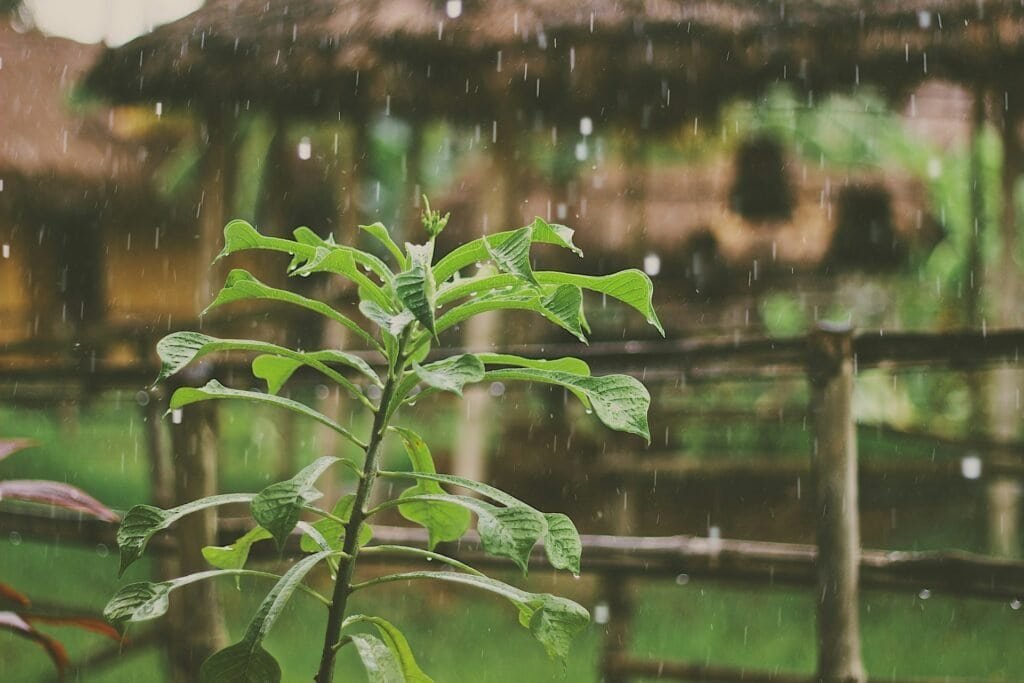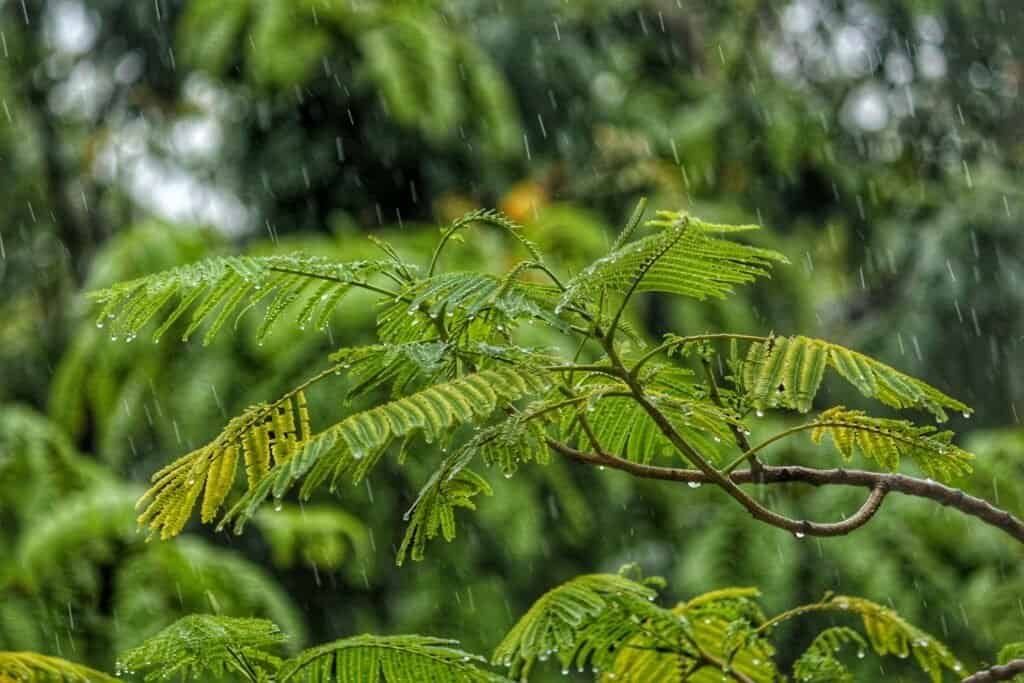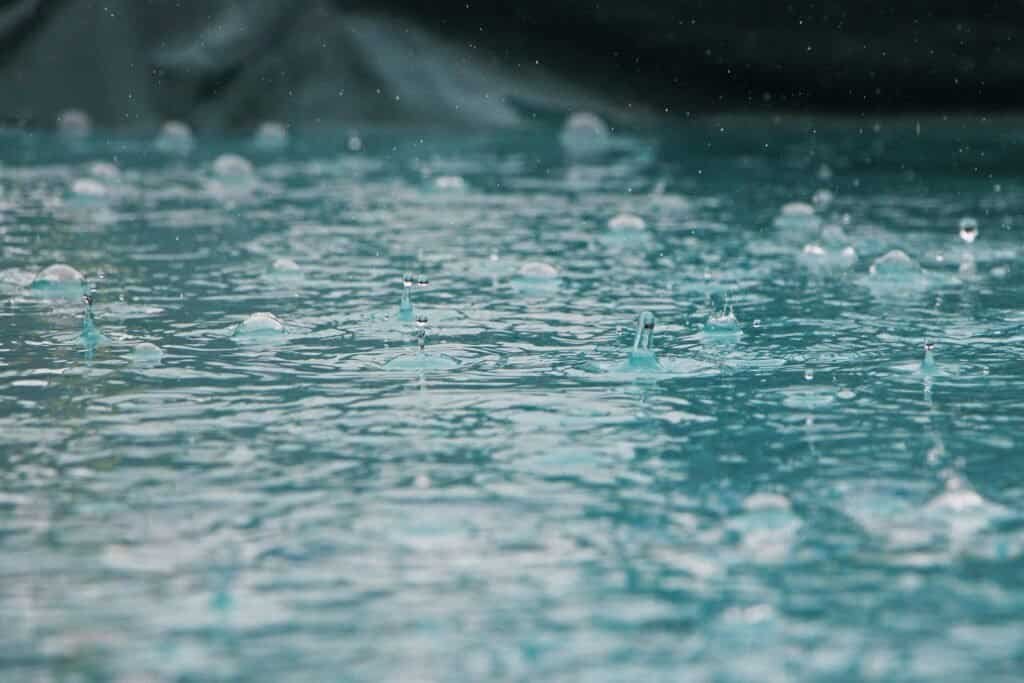In Virginia, the regulations on rainwater harvesting allow homeowners to collect and use rainwater for non-potable purposes. These state regulations are designed to encourage the conservation and sustainable use of water resources. Understanding these guidelines is essential for residents who wish to implement rainwater collection systems on their properties.
Overview of Rainwater Harvesting Laws in Virginia
Virginia law permits residents to collect rainwater on their properties. This practice is supported as a means to conserve water and manage stormwater runoff. Collecting rainwater is subject to specific conditions and guidelines, which aim to ensure the health and safety of the community while optimizing water use efficiency.
Historical Context of Water Collection Regulations
Historically, water collection in Virginia was less regulated, with few formal restrictions on the use of collected rainwater, primarily for landscape irrigation and agricultural purposes. Over time, as awareness of water conservation grew, so did the need for more structured regulations.
These historical shifts have led to the development of guidelines that now govern the use of collected rainwater, ensuring it is utilized responsibly and sustainably, especially when watering gardens and lawns.
Current Legal Framework for Harvesting Rainwater
Virginia’s current legal framework for harvesting rainwater provides a structured approach to water conservation. The state encourages collecting and using rainwater for non-potable purposes such as toilet flushing, laundry, and irrigation, under certain conditions that safeguard public health.
Residents who wish to implement rainwater harvesting systems must follow state and local regulations, which may include obtaining permits and ensuring that systems are properly designed and maintained to prevent contamination and promote efficient use.
Virginia’s Position Compared to Other States
Compared to other states, Virginia is progressive in its approach to collecting rainwater and stormwater management. The state recognizes the importance of these practices in reducing the strain on municipal water systems and mitigating the effects of stormwater runoff.
Additionally, Virginia offers tax credits to incentivize rainwater collection, showcasing the state’s commitment to sustainable water use practices. These incentives are indicative of a broader trend toward environmental stewardship and resource conservation.

Navigating Virginia’s Legal Landscape for Rainwater Collection
Virginia’s legal landscape for rainwater collection is designed to balance conservation efforts with the need to protect public health and safety. Homeowners looking to capture rainwater are highly encouraged to familiarize themselves with the relevant laws and guidelines that govern such practices in the state.
This includes understanding the potential tax credits available, which can provide financial benefits to those who invest in rainwater harvesting systems. Adhering to these regulations is crucial for the legal and efficient operation of rainwater collection endeavors.
Permitting Process for Rainwater Harvesting Systems
The permitting process for collecting rainwater in Virginia is relatively straightforward. Residents who wish to collect rainwater for use in their homes and gardens need to ensure their systems comply with state standards and may require approval from local health departments, depending on the intended use.
Zoning and Land Use Implications for Collectors
Zoning and land use regulations play a significant role in stormwater management and the implementation of rainwater collection systems. These regulations determine where and how rainwater collection systems can be installed, ensuring that they do not adversely affect land use patterns or cause environmental harm.
Building Codes Impacting Rainwater Collection
Building codes in Virginia include provisions related to health and safety that impact rainwater collection systems. These codes dictate the materials, construction standards, and maintenance requirements for rainwater harvesting to ensure the systems are safe and do not pose a risk to residents.
Specific Restrictions and Requirements in Virginia
Virginia’s regulations outline specific restrictions and requirements for rainwater collection, ensuring it is conducted safely and sustainably.
Volume Limitations on Rainwater Collection
Virginia imposes no statewide volume limitations on the amount of rainwater that can be collected by private individuals. However, local jurisdictions may have their own restrictions, and residents are advised to consult local ordinances to ensure compliance with any volume caps that might be in place.
These local regulations are typically intended to balance individual collection practices with the broader needs of the community, ensuring adequate water supply for all and preventing potential disputes over water rights.
Usage Parameters for Harvested Rainwater
The usage parameters for harvested rainwater in Virginia typically restrict use to non-potable purposes, such as landscape irrigation and toilet flushing. This is to prevent potential health risks associated with untreated water being used for drinking or cooking.
Systems designed for collecting and using rainwater must be clearly labeled and separate from potable water systems, to avoid any cross-contamination. These parameters ensure the safe utilization of rainwater while promoting conservation.
Areas With Special Considerations or Exemptions
In certain areas, stormwater management considerations or local water scarcity issues may lead to special considerations or exemptions for rainwater collection. These areas may have more stringent or relaxed regulations, depending on the local environment and water demands.
For example, regions with high stormwater runoff might encourage more aggressive rainwater harvesting to alleviate pressure on drainage systems, while areas prone to drought may have different priorities and guidelines.
Incentives and Rebates to Encourage Rainwater Collection
To foster sustainable water use, Virginia offers tax credits and other incentives for residents who install rainwater harvesting systems.
State-Sponsored Incentives for Rainwater Harvesting
Virginia supports collecting rainwater through state-sponsored incentives that aim to lower the initial cost of installing a rainwater harvesting system. These incentives are part of the state’s commitment to sustainable water management and conservation practices.
Residents who take advantage of these programs not only benefit from reduced water bills but also contribute to the state’s environmental goals by reducing their reliance on treated municipal water supplies for non-potable uses.
Federal Support and Grants for Water Conservation
The federal government provides a supportive backdrop for states like Virginia, encouraging water conservation through various grants and programs. Initiatives such as the Environmental Protection Agency’s (EPA) WaterSense program promote water efficiency across the country. Homeowners and businesses in Virginia can access resources and funding to implement rainwater harvesting systems, reflecting a national acknowledgment of the benefits of rainwater use.
Moreover, the Bureau of Reclamation offers WaterSMART Grants aimed at improving water conservation and helping the environment, which Virginians can apply for. These grants support projects that conserve and use water more efficiently, contribute to water supply reliability, and help realize the environmental benefits of rainwater collection and use.
Local Programs and Nonprofits Advocating for Rainwater Collection
At the local level, various programs and nonprofits in Virginia are actively promoting rainwater harvesting. These organizations educate the public about the benefits of rainwater collection and assist in setting up rainwater harvesting systems. For instance, the Virginia Rainwater Harvesting Manual offers guidance on best practices, while local water authorities sometimes offer workshops and seminars.
Nonprofits such as the Rainwater Management Solutions work within the state to advocate for sustainable water practices, helping residents understand the legalities and practicalities of installing rainwater collection systems. These local advocates are crucial in fostering community awareness and participation in water conservation efforts.

Legal Implications of Water Rights and Ownership
In Virginia, water rights and ownership have significant legal implications for residents interested in rainwater harvesting. While the state encourages the collection and use of rainwater, it is essential to understand the legal framework to ensure compliance with state laws and regulations. For those seeking to navigate these waters, obtaining legal advice from professionals knowledgeable about Virginia’s water laws is highly beneficial.
Ownership of Collected Rainwater
In Virginia, individuals who collect rainwater have rights to the use of that water for non-potable purposes. The Rainwater Capture Act of 2012 supports the notion that collected rainwater can be used for landscape irrigation and other similar uses. However, ownership is subject to state and local regulations that govern water collection and use, ensuring that the collected rainwater is used in a manner that aligns with broader conservation goals.
Rainwater Harvesting and Virginia Water Rights
Virginia recognizes the benefits of rainwater harvesting in the state and has established a legal structure that encourages its practice while respecting water rights. Homeowners and businesses can install rainwater harvesting systems, which can provide an alternative water source and contribute to the overall water conservation efforts in the state, as long as they adhere to the prescribed regulations.
Impact of Rainwater Collection on Surrounding Ecosystems
Collecting rainwater can have positive effects on local ecosystems by reducing the demand on natural water bodies and mitigating stormwater runoff. In Virginia, rainwater collection systems must be designed to minimize any adverse impacts on the environment, ensuring that the natural water cycle is not significantly disrupted and that aquatic habitats are preserved.
Compliance and Inspection for Rain Collection Systems
Compliance with Virginia’s regulations for rainwater harvesting systems is mandatory, and regular inspections may be conducted to ensure adherence to standards. These measures protect the quality of water and the safety of the systems for both the users and the environment.
Documentation Required for Legal Compliance
To legally collect rainwater in Virginia, residents must maintain proper documentation of their rainwater harvesting system. This includes permits, design plans, and proof of regular maintenance. Such documentation is crucial in the event of inspections and serves as a record that the system complies with state health and safety regulations.
Inspection Protocols to Ensure System Safety
Virginia mandates specific inspection protocols to ensure the safety and proper functioning of rainwater collection systems. These inspections might include checking filtration and disinfection components, ensuring proper system installation, and verifying that overflow and drainage mechanisms are working correctly. These protocols help ensure that rainwater harvesting contributes to sustainable water management without compromising public health.
Consequences of Non-Compliance in Virginia
Failure to comply with Virginia’s regulations for rainwater harvesting can lead to various consequences. Non-compliance may result in fines, the dismantling of non-conforming systems, or other penalties. Additionally, residents may lose eligibility for stormwater management tax credits, which are incentives offered to those who meet the state’s water conservation standards.
Resources for Rainwater Harvesting
Virginia offers numerous educational resources for residents interested in rainwater harvesting. These resources range from online guides and manuals to hands-on workshops conducted by local water authorities. The goal is to educate residents about the benefits of rainwater collection and how to implement systems that comply with state regulations.
Furthermore, tax credits are available to incentivize the adoption of rainwater harvesting practices. These tax credits can offset the cost of equipment and installation for eligible systems, making it more affordable for Virginians to contribute to water conservation efforts.
Environmental Benefits of Rainwater Harvesting
Rainwater harvesting offers numerous environmental benefits, including reducing the strain on municipal water supplies and mitigating stormwater runoff, which can lead to erosion and pollution in waterways.
The Role of Rainwater Collection in Sustainable Living
Implementing rainwater collection systems is a practical step towards sustainable living. By capturing and utilizing rainwater for non-potable uses, homeowners can significantly reduce their reliance on treated water sources, conserve energy, and contribute to the preservation of natural resources.
Climate Resilience through Rainwater Harvesting
Rainwater harvesting enhances climate resilience by providing an alternative water source during droughts and reducing the impact of heavy rain events. In Virginia, where weather patterns can be unpredictable, having a rainwater collection system helps households and communities adapt to climate variability and maintain water security.
Reducing Water Footprint with Rain Collection
Using rainwater for irrigation, toilet flushing, and other non-potable applications reduces a household’s water footprint. In Virginia, this practice not only supports personal conservation efforts but also contributes to statewide goals for sustainable water use. When communities embrace rainwater collection, they collectively reduce the demand on local water treatment facilities and natural water bodies.
Moreover, rainwater is often the preferred choice for gardening and landscaping as it is free from many of the chemicals found in municipal water, promoting healthier plant growth and reducing the need for additional fertilizers and chemicals that can harm the environment.

Common Questions About Collecting Rainwater in Virginia
Many Virginians are curious about the legality and benefits of collecting rainwater on their property. Questions often arise about the implications for personal and environmental well-being, as well as the potential financial advantages associated with the practice. Addressing these inquiries is essential for homeowners considering the adoption of rainwater harvesting systems.
1. Are tax credits available for rainwater collection systems?
In Virginia, homeowners exploring the installation of rainwater collection systems may find financial incentives to offset costs. While tax credits specifically for rainwater harvesting may not always be available, various state and local programs can provide financial support for water conservation measures that include rainwater collection. It’s advisable to check current programs as offerings can change over time.
2. Legal considerations for using rain barrels in residential areas
When implementing rain barrels in residential areas, Virginians should be mindful of local regulations. While collecting rainwater is generally legal, specific guidelines may dictate the size, placement, and usage of rain barrels. Consulting local zoning ordinances and homeowners’ association rules, if applicable, ensures compliance and avoids potential disputes or fines.
Crafting an Effective Rainwater Harvesting Strategy in Virginia
Developing a successful rainwater harvesting strategy in Virginia involves understanding the local climate, water needs, and legal requirements. By considering these factors, homeowners can design systems that are both efficient and compliant, contributing to sustainable water management practices within the community.
Best Practices for Designing a Collection System
Designing an effective rainwater collection system begins with assessing the roof’s surface area and material, as these influence water yield and quality. It’s also crucial to incorporate first-flush devices and appropriate filters to ensure water purity. Properly sizing storage tanks to match the household’s water demand and the area’s rainfall patterns optimizes the system’s utility and efficiency.
Selecting Suitable Equipment and Technology
Choosing the right equipment is vital for a functional rainwater harvesting system. Select tanks, pumps, and pipes that are durable and suitable for the intended use, whether it’s for irrigation, indoor non-potable uses, or potable purposes after adequate treatment. Employing technology such as automated controls can further enhance the system’s effectiveness and ease of use.
Integrating Rainwater Harvesting with Other Water Conservation Measures
Integrating rainwater harvesting with additional water conservation practices amplifies environmental benefits. This holistic approach includes using drought-resistant landscaping, implementing efficient irrigation systems, and reducing indoor water use. Combined, these efforts lead to significant water savings and contribute to a more sustainable lifestyle.
Conclusion
In Virginia, it is legal to harvest rainwater for non-potable uses, reflecting a growing recognition of the benefits this practice offers in terms of managing stormwater runoff and reducing demand on traditional water supply systems. State governments, including Virginia’s, have developed legal frameworks that not only permit but actively encourage the collection of rainwater. This is often done through incentives for rainwater harvesting, which aim to promote the uptake of systems that can alleviate the impact of stormwater runoff on urban infrastructure.
Moreover, Virginia’s plumbing codes have evolved to support the safe implementation of rainwater harvesting systems, ensuring that when it’s allowed for non-potable purposes, such as irrigation and toilet flushing, it meets health and safety standards. Through these regulations and support mechanisms, rainwater harvesting is encouraged as a valuable component of sustainable water management. Homeowners and businesses alike can take advantage of these opportunities to contribute to environmental stewardship while also enjoying the practical benefits of rainwater collection.


